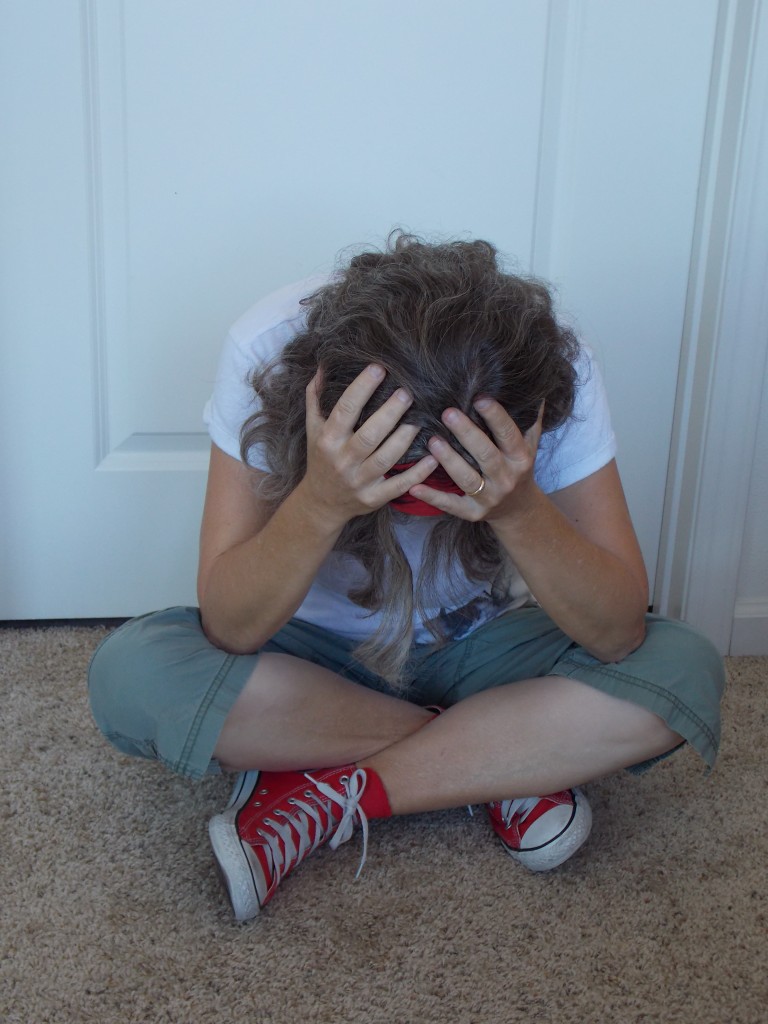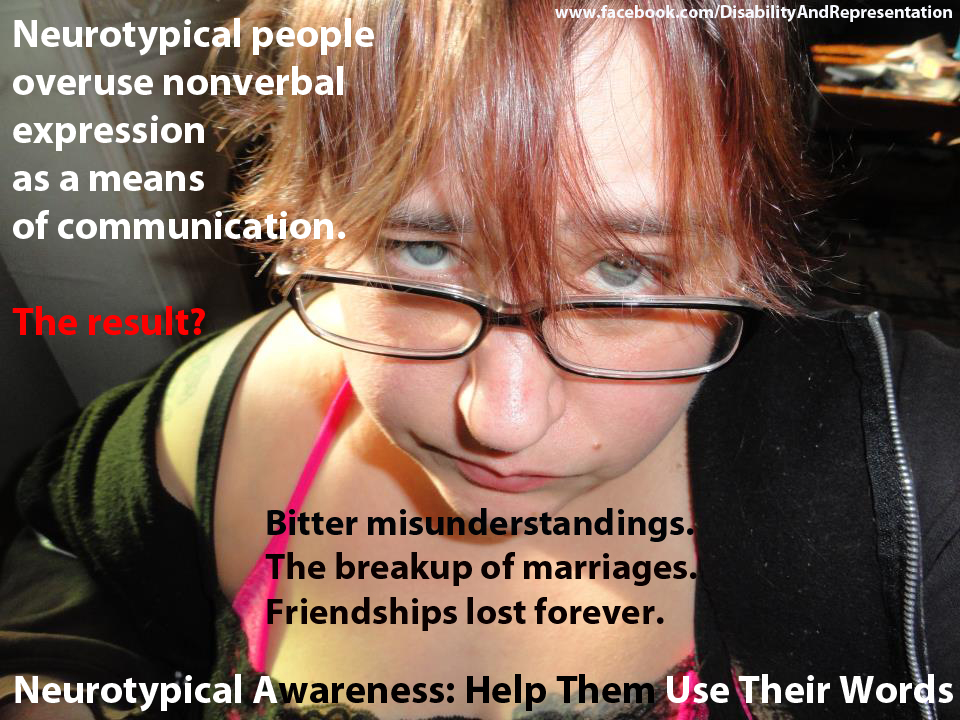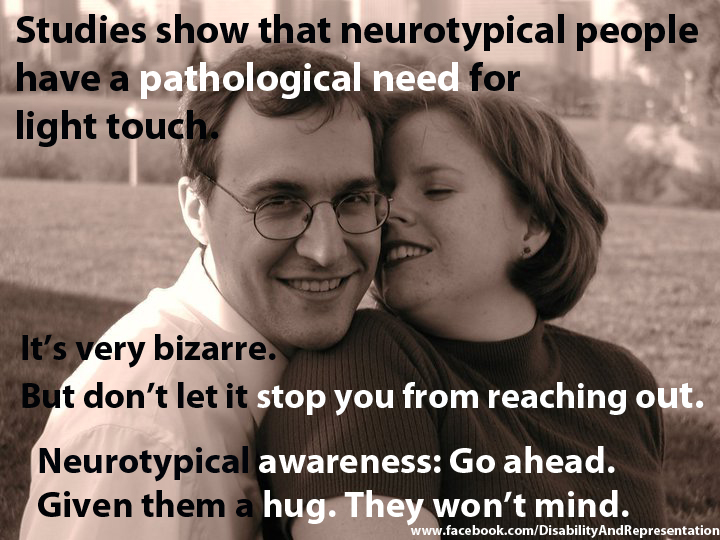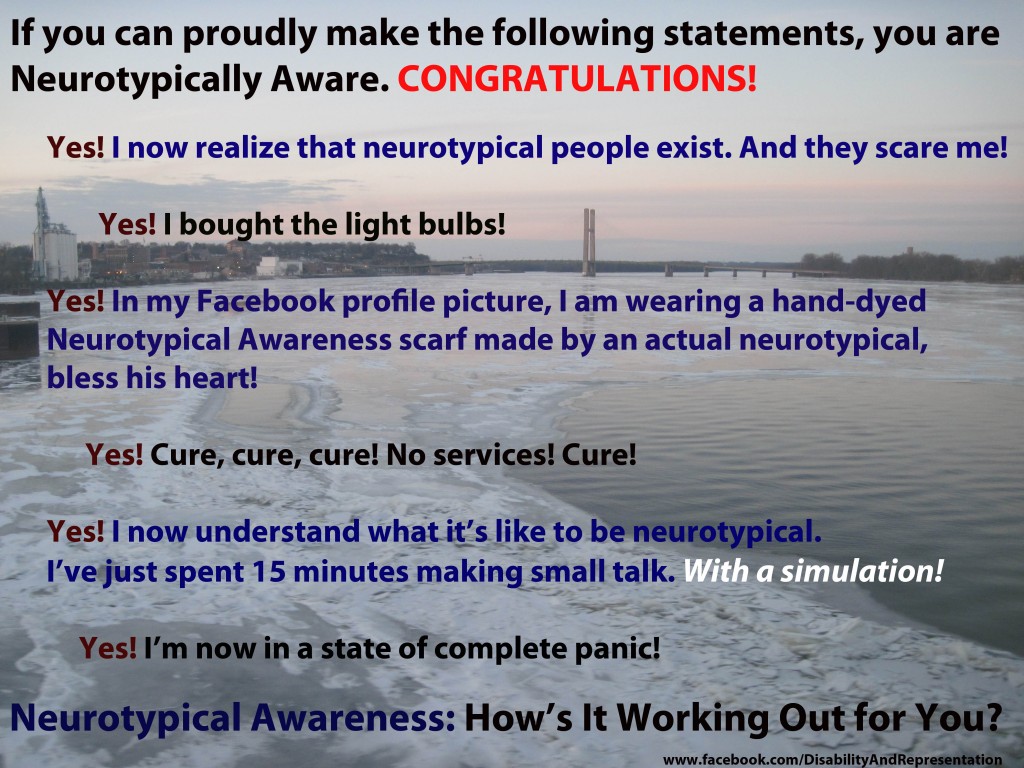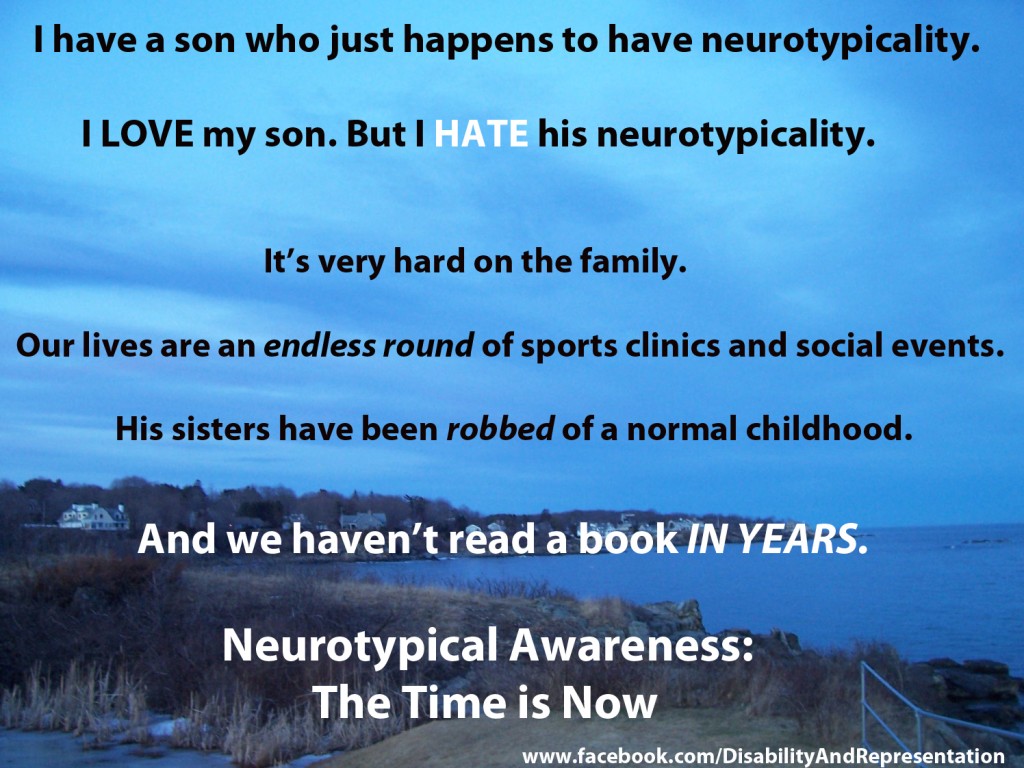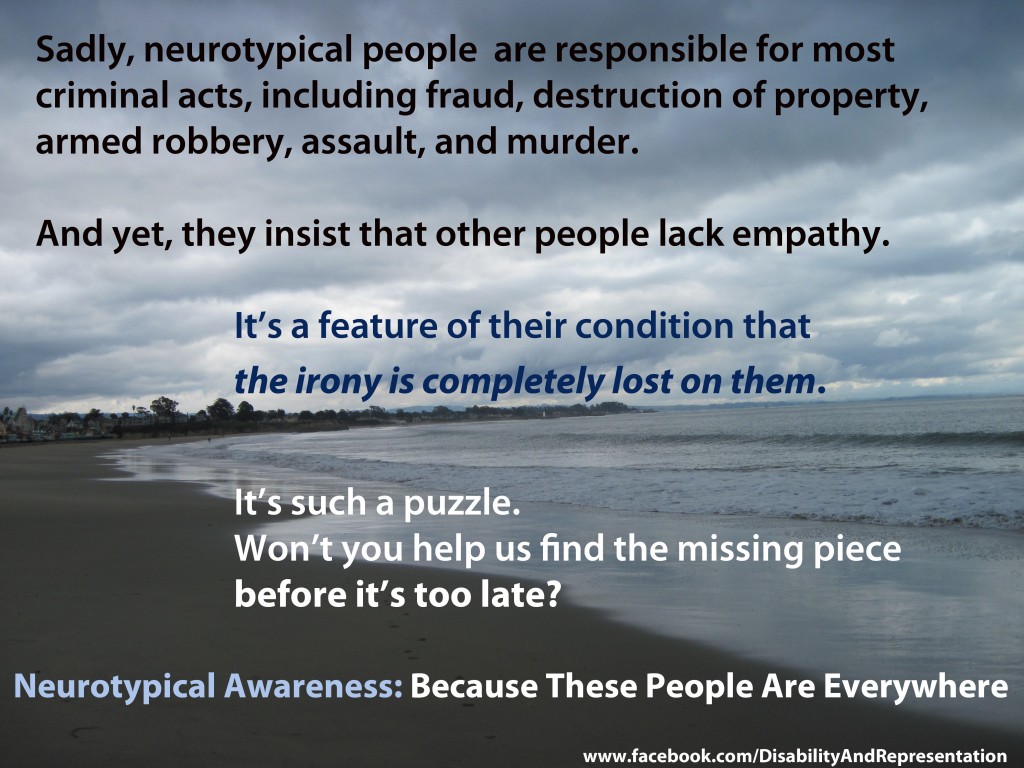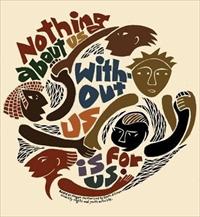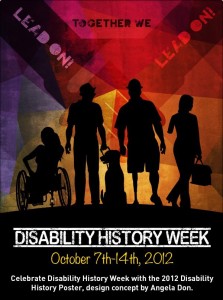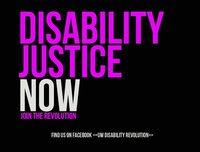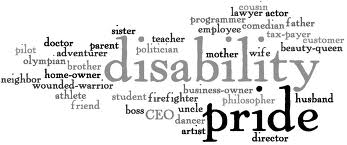But You Don’t Look Disabled!
 [The graphic consists of a bingo card with the words “But You Don't Look Disabled!” at the top. The card consists of five rows of five boxes each. The text in each row consists of the following, from left to right:
[The graphic consists of a bingo card with the words “But You Don't Look Disabled!” at the top. The card consists of five rows of five boxes each. The text in each row consists of the following, from left to right:
Row 1: Well, that's the *main* thing.
And that's relevant WHY?
Before we continue, I'll need to see your medical credentials.
Can I borrow your x-ray vision goggles, please?
Seriously. NOT a compliment.
Row 2: Shhh! You'll blow my cover!
I'm not. I just play a disabled person on TV.
Awww. You're just trying to make me feel WORSE.
I'd love to agree, but I don't want to be wrong.
You really need to expand your definitions.
Row 3: Bwahahaha!
And you don't look completely tactless!
WTF? Free space WTF?
Thank you, but that is NOT helpful.
What does disabled look like?
Row 4: You're practicing medicine? Right here?
Well, I am. And things look like themselves, right?
I'm sorry. Do I know you?
Didn't you know? I'm just faking it for the social status.
And you don't look like a doctor?
Row 5: I'm actually an alien. But you can't see that, either.
*Silence*
What do you imagine I think of you right now?
And you don't look ignorant. But here we are!
I must have forgotten to wear my black triangle.
Crowd-sourced at https://www.facebook.com/DisabilityAnd
Representation/posts/681017075242936
October 15, 2013]
© 2013 by Rachel Cohen-Rottenberg
I Am Now Officially a Bitter Crip!
As many of you know, I have been working very hard at being a bitter crip. I critique the hell out of everything. I write about inspiration porn. I analyze media stories about disability. I complain loudly at the merest hint of ableist rhetoric. I even write about people giving me grief at the post office and in the check-out line.
And yet, until yesterday, I’d never been called a bitter crip. Not once. Not ever. After working so hard at it for so long, I’d just never received the recognition I craved. It was all a trial and a tribulation.
I was beginning to lose hope. After all, I’m 55 years old and I’ve been in a state of entirely justifiable outrage deep and abiding bitterness for a long time. I thought, holy crap, if I haven’t made it to bitter crip status at this point, maybe I should just give it up and post cat videos.
But then I wrote a piece about a beer commercial and… Wow! You should see the comments I got! Some of them actually made it out of moderation and onto my blog. Others were in such thorough violation of my simple and intuitive “Don’t be nasty to the blogger” policy that I didn’t let them through. But still! I thought I’d reached the golden pinnacle of bitter cripdom when I received the following comment on Thursday:
“Jesus, you are a fucking miserable person. That was a nice ad with a nice message. I think you’ve expressed your own insecurities far more than you’ve expressed any flaws in the advertisement.”
Being called a “fucking miserable person” is pretty close to being called a bitter crip, but it’s not quite the same. In my desperation, I kept trying to make it the same, but who was I fooling? I felt like such a wannabe.
But then on Friday, I finally made it. I was so excited! Here is the comment that put me over the top:
“OMG!! Are you for real??? Bitter, at all??? This was an incredible commercial. No, ‘regular guys’ wouldn’t be so agile in using wheelchairs to play basketball, but the thought that they might attempt it so that their friend, who depends on a wheelchair can play a legitimate game of basketball with them is the message!!!!!!! You don’t get that???
You must live a very sad, sorry, pitiful life… wheelchair or no wheelchair…”
DINGDINGDINGDINGDING! Bonus points for gratuitous use of exclamation points and question marks!!!!!!
Gosh! It’s such a moment! And so unexpected! I hardly know what to say. I could never have gotten here on my own, that’s for sure. It takes a village to raise a bitter crip, and thanks are due all around.
Thank you to all of my fellow bitter crips for being such INSPIRING role models. OMG! There are too many of you to list here, but you know who you are!
Thank you to all of the people who have left nasty comments on my blogs over the years. You have kept hope alive that, one day, I might enter the ranks of bitter cripdom!
Thank you to all of the people who have told me, throughout the course of my life, that I should just be grateful and shut the fuck up and stop thinking about things so much. Without you, I’d never have dreamed this big!
And finally, to the lovely lady who called me a bitter crip: Thank you! This is a moment that I will cherish forever.
Let the celebration begin!
(You can find the lyrics here.)
© 2013 by Rachel Cohen-Rottenberg
Breaking News! Experts Say That Being Alive Causes Autism
(April 26, 2013, Albatross University) — In a dramatic new breakthrough, researchers have concluded that autism is caused by being alive.
“This is a great day for medical science,” said Dr. Ernest Eagerly, Director of the Department for the Medicalization of Humanity at Albatross University. “Our research team sorted through a myriad of studies linking autism to everything from pet shampoo to freeway traffic to creases in the placenta. After controlling for variables in the research such as usefulness, rationality, shameless self-promotion, and general hysterical posturing, we determined that all of the studies had one thing in common: people with autism are alive.”
But that’s not all, according to Dr. Eagerly. “Not only are people with autism alive, but their parents are also alive — a clear and dramatic indicator of an underlying genetic mechanism. This new understanding opens up exciting avenues for treatment and cure. If we can locate the gene that controls for being alive, we might just crack the autism puzzle once and for all.”
Autism is a neurodevelopmental disorder that has stolen the souls of 1 out of 88 adorable children who otherwise look completely human. There is no cure.
While the latest research findings are dramatic, experts caution the general public that it’s important to be circumspect. “Being alive takes many forms and one has to be on guard against them at all times,” said Jenny McWhatsHerName, spokesperson for Only My Generation! (OMG!), an organization dedicated to the proposition that an epidemic of aliveness began with the development of vaccines. “Aliveness is not just a simple question of breathing,” she said with a giggle. “I mean, duh! You can’t simply hold your breath until you pass out and think that you’re going to be able to beat this autism thing! Laughing, loving, feeling at ease with your life — these are all warning signs.”
What’s the bottom line, according to OMG!? “Be afraid,” she said. “Be very afraid.”
Dr. Eagerly agrees. “We have found that the best defense against a diagnosis of autism is to sit completely skill and live in abject fear. I know it seems extreme,” he added, “but what’s the alternative? Enjoying your life? That will only result in hordes of people with autism being released upon an innocent and unsuspecting public.”
Because the only known remedy for being alive is dying, researchers stress that a cure may not be in the offing for several years. “It’s a tricky situation,” said Dr. Eagerly. “How do we separate autism from being alive, when the two are so closely linked?” He lauds the efforts of organizations like “OMG!” that suck the will to live right out of autistic people and their families.
“These organizations are on the cutting edge,” he said. “Just keep sending them your money.”
© 2013 by Rachel Cohen-Rottenberg
Neurotypical Awareness: Some Clarifications of Intent
I’m really gratified by how many people have shared my Neurotypical Awareness memes and all the great comments that these memes — you should pardon the expression — have inspired. Based on some of the comments I’ve seen over the past week, though, I feel it necessary to clarify a few things for people who are unfamiliar with my work and approach.
The intent of the Neurotypical Awareness memes is not to parody individuals or their concerns. For instance, I’m not saying that raising an autistic kid is easy, and I’m not saying that being autistic is easy, and I’m not saying that people should be quiet about it. Physically, socially, economically, emotionally, and in many other ways, it can be very difficult — because of the nature of the condition and because of the obstacles that the world puts up. What I’m doing is parodying representations of autism — by professionals and organizations and media outlets — that constantly beat the drum about how autism is nothing but tragedy and grief and loss and deficit, or conversely, a grand opportunity for Special Inspirational Achievement and Overcoming the Odds.
I don’t think those extremes help us. And those are generally the extremes at which most mainstream autism representation works. The same is true for mainstream representations of most — if not all — disabilities.
It’s clear that a number of people feel uncomfortable about these memes. My feeling is that this discomfort is a good thing. If people are uncomfortable when reading them, then what I’m doing is effective. People should feel uncomfortable when the shoe is on the other foot and pejorative attitudes are directed at them or at those they care about. I want people to have the experience of how it feels for disabled people to deal with these kinds of messages day in and day out.
The problem, from my perspective, isn’t that people get offended. The problem is that people get offended and then don’t question why they’re offended and why I’d want them to feel that.
Several people have said that I’m just being negative. But that’s not me. I don’t do negative for the sake of negative, and I have no interest in paying back the non-disabled world for the way it treats us. I don’t think about life that way. My only interest is to shine a light on our cultural memes about disability and on their impact.
In other words, this isn’t therapy. It’s social commentary. And if it makes you uncomfortable, then I’m doing my job.
© 2013 by Rachel Cohen-Rottenberg

